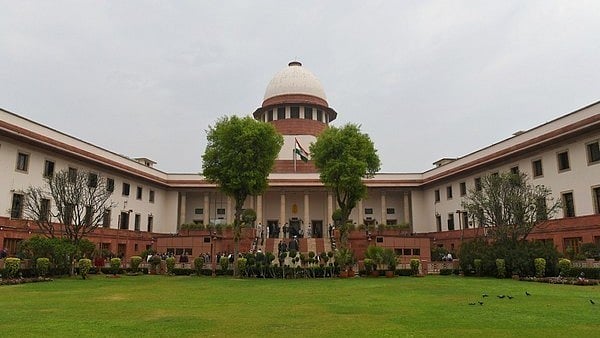
The Supreme Court of India.
Credit: PTI Photo
New Delhi: The Supreme Court on Wednesday said there can be no universally accepted rule that every time a higher qualified candidate is to be preferred to a candidate who matches the essential qualification required for a post. At times, the employer’s need to have the right people at the right place, and not always the higher qualified, has to be conceded, it said.
A bench of Justices Dipankar Datta and Manmohan asked lack of public employment opportunities in sufficient numbers may force even a Master degree holder to apply for the job of a peon but, if he is appointed upon his application being favourably considered, what happens to the aspirants who have not had the means of pursuing study beyond the 12th standard.
"Do they remain unemployed for ever, if all or majority of the posts of peon are filled up by such degree holders? What happens if the Master degree holder, in pursuit of greener pastures, leaves the post of Peon for a better and secured higher job commensurate with his qualifications after a couple of years? Does it not, in such a case, burden the public exchequer by requiring the employer to initiate a fresh selection process," the court asked.
It posed more questions: is not the State, as a model employer, obliged to ensure that the posts of peon are filled up only by those having the basic qualification, and not by over qualified candidates, for sub-serving the common good? Does not the State have the obligation to strive to ensure that all citizens have adequate means of livelihood?
The bench said these are questions which no court can afford to ignore.
"Each case that comes before the court has to be decided on its own peculiar facts and the problem that it presents for resolution and that there can be no universally accepted rule that every time, a higher qualified candidate is to be preferred to a candidate who matches the essential qualification required for the post," the bench said.
The court dismissed a plea by Jomon K K against an order to cancel his appointment to the post of Boat Lascar in 2018, as he did not possess Lascar's licence but had higher qualification of Syrang’s licence in the 12 posts advertised by the Kerala Public Service Commission in Kerala State Water Transport Department.
"Equality of opportunity in matters of public employment being a sine qua non for a fair and transparent selection process, such equality is conspicuously absent in the present case," the court said, also refusing to use its power under Article 142 of the Constitution to validate the appointment.
The court emphasised whether or not the action of the employer to exclude an aspirant from the process of selection (on the ground that either he is overqualified for a particular post or has qualifications which, being over and above what is ordained by statutory rules or rules framed under the proviso to Rule 309 of the Constitution, does not match the qualification specifically required) is justified has to be decided considering the rules governing the selection, the qualifications prescribed, the nature of duty to be performed, the nature of service to be rendered and a host of other factors.
KPSC led by counsel Vipin Nair said had it been known that anyone not having a Lascar’s licence but having a Syrang’s licence would be eligible for consideration for appointment on the post of Lascar, others having Syrang’s certificate could also have applied thereby enlarging the zone of consideration.
However, keeping the process confined only to a select few and not extending opportunity to all others similarly situate like the appellant would contravene Article 16 of the Constitution and also amount to a fraud on the public, he said.
